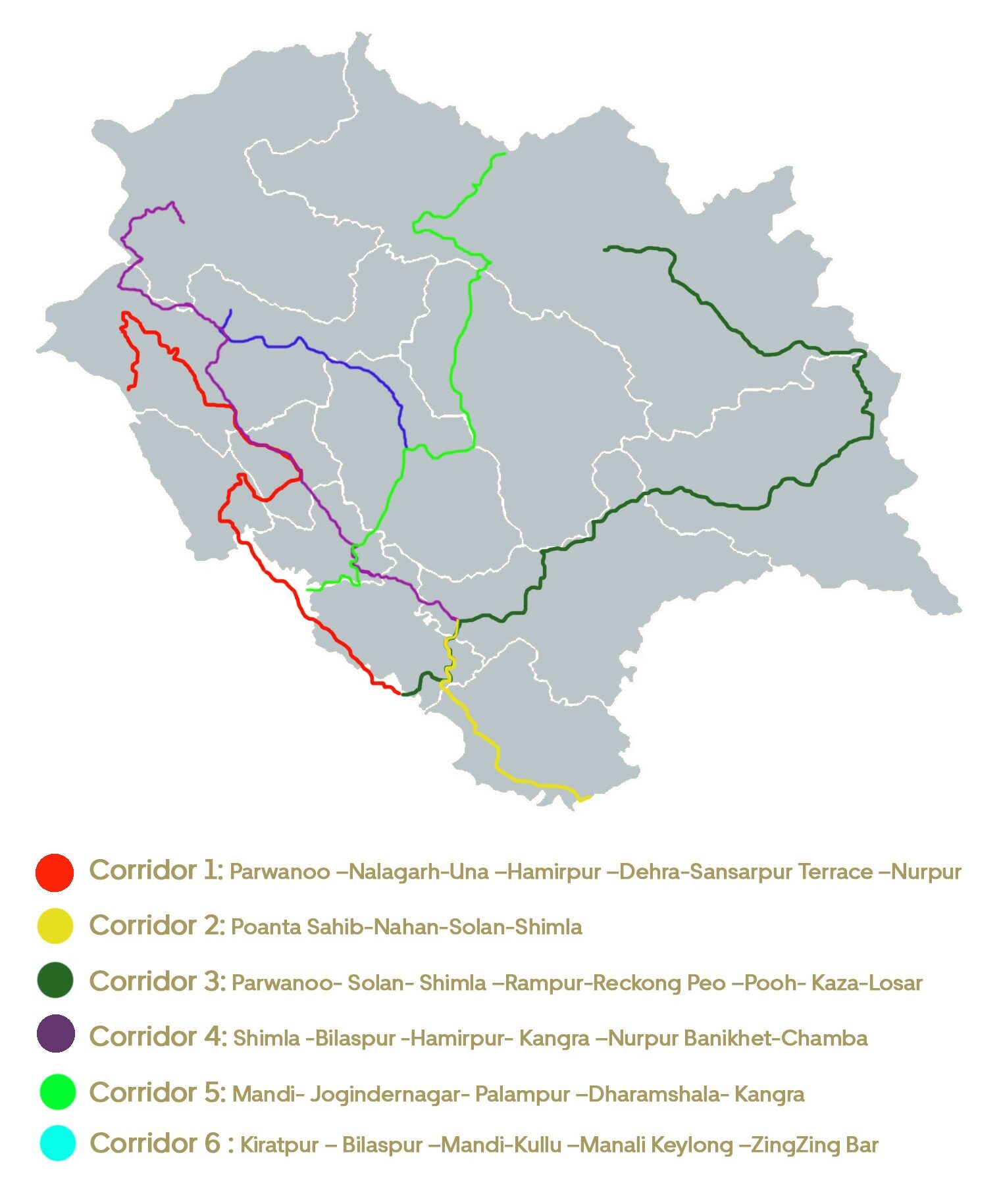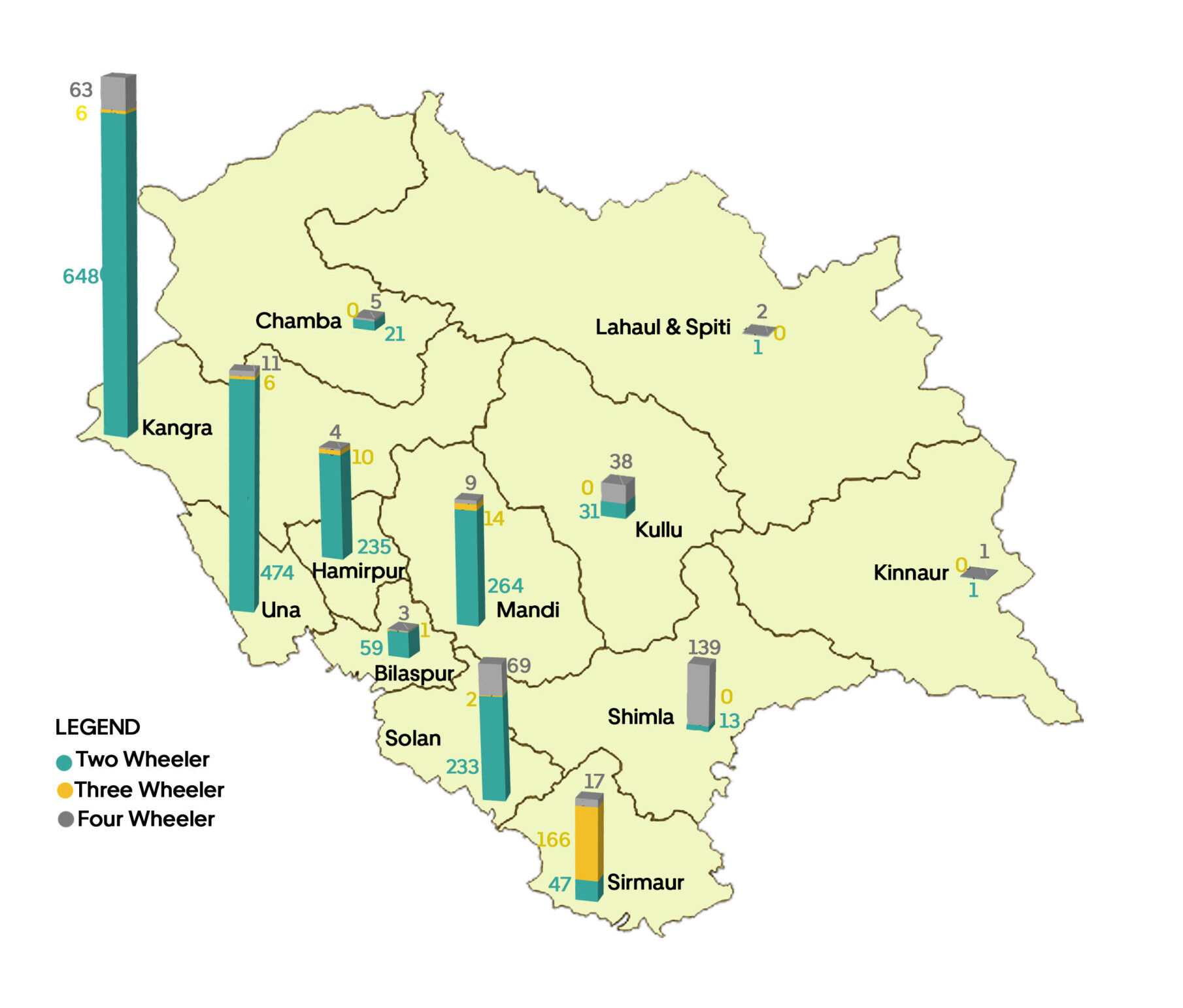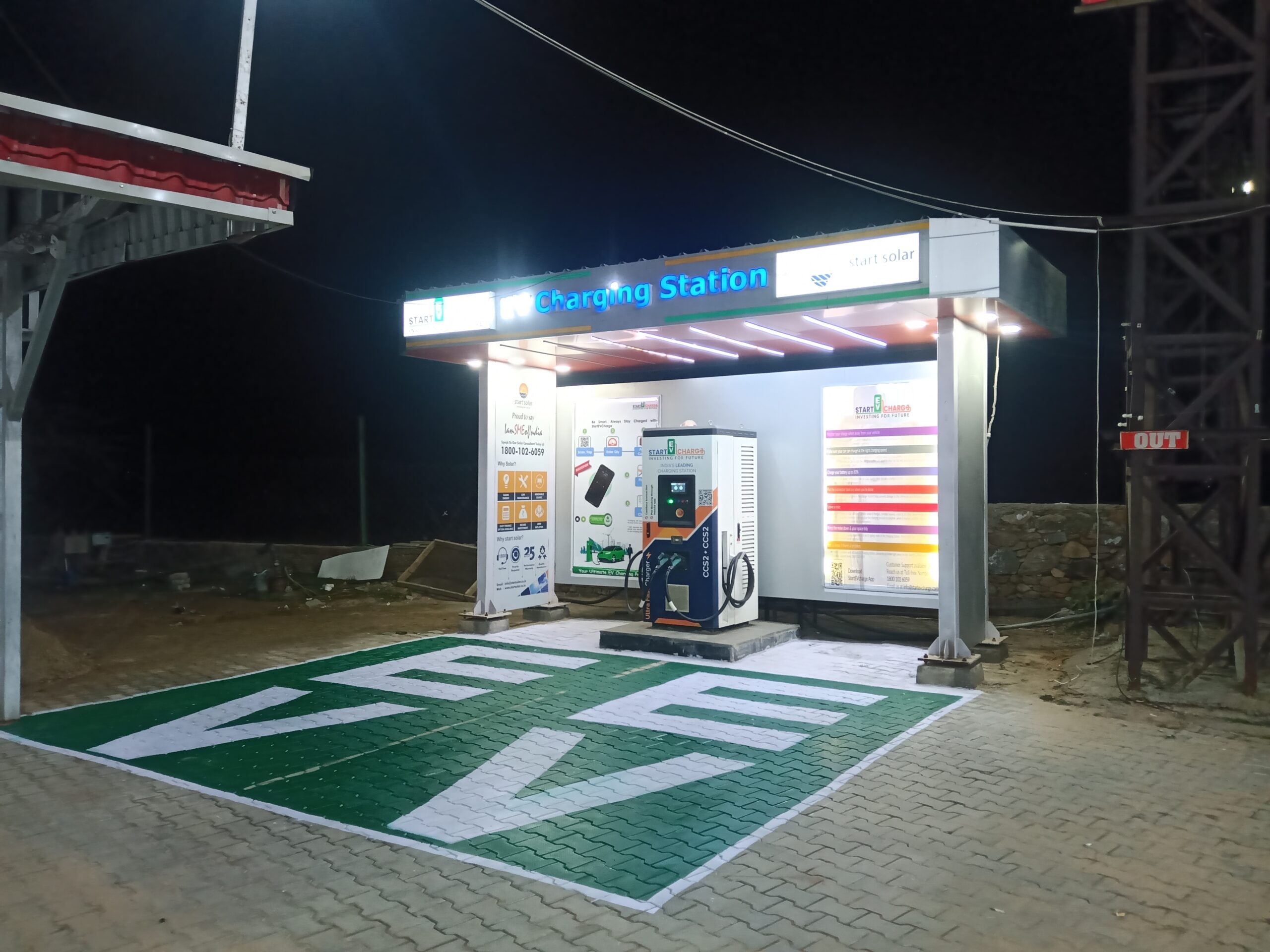Embracing Electric Mobility in Himachal Pradesh

Himachal Pradesh is charting an unprecedented course towards becoming a lighthouse of zero-emission vehicle adoption unlike any other hilly region in India. This journey is marked by an unwavering commitment to sustainable mobility. This despite the state’s unique demographic challenges, where only a handful of its population resides in urban areas. The steadfast dedication not only mirrors the national vision for sustainable transport but elevates it, setting a new benchmark for innovation in mobility.
In a transformational move announced in 2023, the state is developing six green corridors on national and state highways to expand the electric vehicle charging infrastructure. Himachal Pradesh’s approach to embracing electric mobility is not just a policy decision; it’s a bold statement against the backdrop of challenges associated with the lay of the land. ICLEI South Asia is bolstering this ambitious endeavour of scaling up electric vehicles (EVs) and charging stations, and developing robust mobility infrastructure, working towards the realisation of the state’s green mobility plans, particularly through the creation of the green corridors.
ICLEI South Asia is working to fast-track the adoption of electric mobility by providing targeted technical support for enabling the readiness of the state to adopt zero-emission vehicles. This collaboration focuses on equipping local governments with the necessary tools and knowledge to implement effective e-mobility strategies, ensuring that hill cities can navigate the challenges of adopting new technologies and infrastructure.
The Green Corridor Approach
The 2011 Census data shows that a mere 10.03% of Himachal Pradesh’s population resides in urban regions. Given the state’s low urban density and predominantly rural character, a strategy that focuses solely on urban centres for charging infrastructure deployment is impractical. Ensuring accessibility to EV charging infrastructure across the diverse landscape is crucial for enabling e-mobility.
Given the state’s unique geography with numerous smaller urban areas, a corridor-based approach to developing EV infrastructure is most suited. This strategy allows tapping into broader regional bases of travellers and freight operators, making charging station locations convenient for local users as well. The introduction of six green corridors (explained below) is a testament to the state’s vision, with an aim to cover over 95% of the major roads with EV chargers and significantly boost usage.
These green corridors represent a network of roads and highways equipped with the necessary infrastructure to support the seamless operation of EVs. Aimed at boosting EV adoption, the initiative includes the installation of battery charging and swapping facilities, signages, and the integration of advanced technology. This strategic development not only facilitates the widespread use of zero-emission vehicles, but also significantly reduces localised air pollution from vehicles.
The six green corridors include: Parwanoo to Nurpur (391 km); Paonta to Shimla (140 km); Parwanoo through to Losar (582 km); Shimla to Chamba (485 km); Mandi to Pathankot (158 km); and Kiratpur to Zingzingbar (381 km). These routes are set to enhance connectivity and accessibility for EV users, thereby addressing range anxiety (concern that an EV does not have sufficient battery charge to reach its destination).
Himachal Pradesh has proactively embarked on this development through comprehensive planning strategies, including stakeholder consultations and collaborations, understanding the key considerations and requirements, identifying implementation partners, and laying out a detailed roadmap for the development of charging stations.
Boosting Eco-Tourism in Tourist Havens
Establishing green corridors in Himachal Pradesh opens avenues for ecotourism. With over 1.5 crore visitors in 2022, as reported by the Department of Tourism, Government of Himachal Pradesh, these corridors will not only facilitate the spread of EVs but also significantly enhance the region’s appeal as an eco-conscious destination. Equipped with charging stations and modern amenities, these green corridors promise to elevate the travel experience, making it hasslefree for EV users. Additionally, they serve as a catalyst for local economic growth, bringing a new lease of life to businesses along these routes, from eateries to accommodations and retail outlets, nurturing a greener economy.
ICLEI South Asia developed a map highlighting potential areas for EV charging stations at various hotels in Shimla, laying the groundwork for a robust EV infrastructure within this key tourist destination. By integrating charging stations into the hospitality sector, the city is poised to cater to environmentally conscious travellers, thereby enhancing Shimla’s appeal as a green destination.
Enhancing EV Charging Infrastructure
The key to encouraging adoption of zero-emission vehicles lies in overcoming the hurdle of range anxiety among potential owners. A comprehensive network of charging stations will enable owners to charge their vehicles quickly and conveniently, mitigating concerns about running out of charge. With 17 charging stations currently operational and 106 planned in a phased manner, the state is on a clear path to electrify its transport sector.
ICLEI South Asia is supporting the government of Himachal Pradesh in the process of identifying priority corridors for the development of charging networks, guided by a comprehensive set of criteria aimed at enhancing accessibility, efficiency, and utilisation. This includes efforts to ensure an equitable distribution of charging stations across regions, making them easily accessible to a broad spectrum of vehicles and users. The approach seeks to minimise the distance drivers must travel to reach a station, thereby reducing ‘dead kilometres’ and filling gaps within the charging network.
A key goal is to achieve high usage rates that attract private operator investment while fostering close geographic and economic ties within communities. Ensuring a consistent and reliable charging experience for drivers is paramount, as is leveraging opportunities for collaboration that facilitate a streamlined and effective expansion of the EV charging network.
Policy and Government Support
The Himachal Pradesh EV policy, introduced in 2022, outlines ambitious goals for adoption and targets 15% EV sales by 2025. The policy emphasises the development of public charging infrastructure, financial incentives for EV purchases, and the encouragement of renewable energy sources for charging these vehicles. Recent initiatives, such as the announcement of green corridors and incentives for female students for purchasing electric two-wheelers, further underline the state’s commitment to sustainable transport.
By facilitating the exchange of knowledge and best practices, ICLEI South Asia is supporting state officials and local stakeholders with tools and technical information for capacity building and awareness such that there is higher adoption of EVs. The efforts further include sharing insights about daily run, route predictability, charging infra requirements, and economic viability of two-wheelers (2W), three-wheelers (3W), along with intra-city buses. It also addresses institutional fleet, private cars, light and heavy vehicles.
In terms of vehicle segments, there has been a noteworthy surge in the registration of electric 2Ws and 3Ws since 2018, reflecting a significant uptake of EVs in these categories. Beginning with a modest registration of just one 2W EV in 2018, the numbers have ascended impressively, with registrations reaching 1,833 2W EVs on Himachal’s roads. This trend is indicative of a growing trend amongst residents for cleaner, and more economical modes of transport in the state’s challenging topography.
A topographical map of Himachal Pradesh prepared by ICLEI South Asia shows the district-wise distribution of EV registrations up to November 2023, offering insights into the regional trends in ownership of clean vehicles. It reveals a disparity in uptake, with the highest number of registrations in the districts of Kangra and Una, followed closely by Solan. In contrast, the challenging terrains of Kinnaur and Lahaul-Spiti, along with Chamba, exhibit the lowest figures, underscoring the influence of topography on EV adoption. The map underscores the topographical challenges that impact the spread of EVs, with lower registrations in the upper reaches of Himachal, likely due to the rugged terrain and harsher weather conditions.
The Road Ahead
The development of green corridors, focusing on enhanced accessibility and convenience for EV owners, showcases an integrated approach to environmental sustainability and economic growth. By prioritising the equitable distribution of charging infrastructure and collaboration with private operators, the state is setting a precedent for other hilly regions.
Himachal Pradesh’s journey towards becoming a green energy state by 2026, with a focus on enhanced EV adoption, is addressing infrastructure needs and offering incentives, paving the way for a sustainable future. As the state continues to implement its vision for electric mobility, it stands as a model for sustainable transport for hill states.






